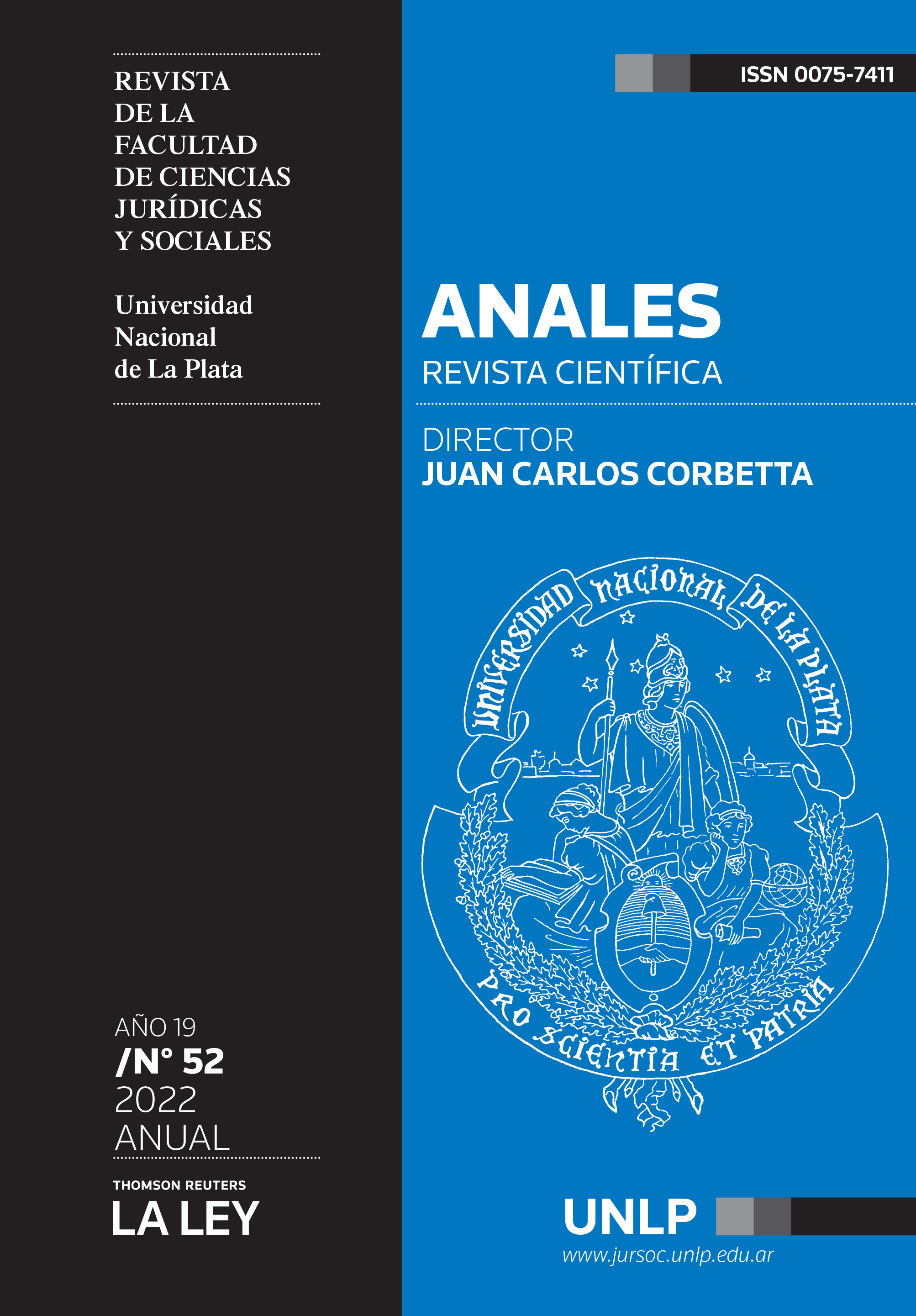The Roman idiosyncracy heritage
DOI:
https://doi.org/10.24215/25916386e131Keywords:
heritage, romans, idiosyncracy, historyAbstract
The present work is carried out within the framework of the research Project J 178/20-22 of the Faculty of Legal and Social Sciences of the National University of La Plata, in charge of Dr. Liliana Zendri who is in charge of it. It is propose to capture the result of a historical investigation in which it is sougth to unravel what patrimonium meant for the Romans in their romanitas as an essential virtue of the Roman idiosincracy, base don the collection of doctrine and sources of law that allow us to infer the Roman mentality linked to the institute being analyze.
Downloads
References
Adam, A. (1834). Antigüedades romanas. Tomo III. Imprenta de Cabrerizo. Valencia. España.
Aramburu, R. (2020). Historia e instituciones de Roma. La Plata: EDULP.
Aramburu, R. (2002). El Homo Sacer. Manifestaciones del elemento religioso en el derecho romano. Revista del Colegio de Abogados, Vol. 42 Nº 63. Argentina: Calcop.
Aulo Gelio (1893). Noches Áticas. Tomos I y II. Madrid: Librería de la Viuda de Hernando y C.
Cogliolo, P .(1898). Estudios acerca de la evolución del derecho privado. Madrid: Editorial Hijos de Reus.
Diccionario Jurídico Latino (2020). Perú: Universidad Sta. María de Arequipa. Recuperado de http://www.ucsm.edu.pe/rabarcaf/vojula00.htm
Fossati, M. (1995). Pauli Setentiae. testo e interpretatio.Virginia: CEDAM. Universidad de Virginia.
Fustel de Coulanges, N. (1971). La ciudad antigua. Imprenta Graficas Diamante. Barcelona, España.
Gaius (1967). Institutas. Texto traducido, notas e introducción por Di Pietro, Alfredo. Buenos Aires: Ediciones Librería Jurídica.
Grant, M. (1960). El mundo romano. Ediciones Guadarrama. Madrid. España.
Justinani (1969). Digesto, tomos1 y 2, versión castellana por A. D’Ors Pérez Peix. Pamplona: Editorial Aranzadi.
Namur P. (1890). De instituciones y de historia del derecho romano. Tomo Segundo. Imprenta La Anticuaria. Tercera Edición corregida y aumentada. Buenos Aires. Argentina.
Plinio (2020). Historia Natural. Libros XII-XVI. Biblioteca Clásica Gredos. España.
Publio Virgilio (2012). Eneida. España: Espasa Libros.
Tácito, C. (1948). Los Anales, Tomo I, Segunda Edición. Buenos Aires: Espasa.
Tito Livio (2001). Historia de Roma desde su fundación. Traducción y notas de José Antonio Villar Vidal. Biblioteca Básica Gredos. Madrid.
Published
How to Cite
Issue
Section
License
Copyright (c) 2022 Romina del Valle Aramburu

This work is licensed under a Creative Commons Attribution-NonCommercial-NoDerivatives 4.0 International License.
Esta licencia no permite la generación de obras derivadas ni hacer un uso comercial de la obra original, es decir, sólo son posibles los usos y finalidades que no tengan carácter comercial.






























